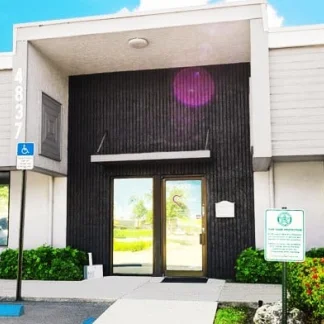CMET - Counseling Mediation Education and Treatment
CMET (Counseling Mediation Education and Treatment) is a private rehab located i...
Agape Treatment Center in Fort Lauderdale, FL is a co-occurring mental health and substance use disorder rehab. It provides evidence based therapies and counseling methods designed to help adults achieve long lasting sobriety.
Agape offers various levels of care designed to meet clients where they are in their recovery. Their services include the following:
The intensive outpatient program (IOP) at Agape provides a balance of treatment and freedom, allowing individuals to maintain their daily responsibilities while working on recovery. This program combines therapy, counseling, and psychoeducation. IOP schedules may differ based on the client, meaning that treatment sessions may be attended during the morning, day, or night time hours.
For those needing structured treatment while maintaining life at home, Agape offers a partial hospitalization program (PHP). Treatment often includes individual and group counseling, expressive therapy, 12 step recovery groups, psychoeducation, family counseling, yoga, and spiritual healing.
Agape’s outpatient drug rehab program continues the support and treatment services for individuals who have completed the higher levels of care. This program reinforces the recovery progress, prevents potential relapses, and fosters continued sobriety. Agape Treatment Center also provides medication assisted treatment (MAT), an evidence based approach that combines medications with behavioral therapies.
Recognizing the impact of addiction on the family unit, Agape offers a dedicated family program. This initiative provides education, counseling, and support to family members, fostering understanding and helping to rebuild damaged relationships.
Contact us for more information: (954) 859-1425

Connect with Agape Treatment Center by calling their admissions team directly.
(954) 859-1425 Website Get DirectionsThe Joint Commission, formerly known as JCAHO, is a nonprofit organization that accredits rehab organizations and programs. Founded in 1951, the Joint Commision's mission is to improve the quality of patient care and demonstrating the quality of patient care.
Joint Commission Accreditation: Yes
LegitScript has reviewed Agape Treatment Center as part of their certification program, and has determined that it meets the LegitScript standards for legality, safety and transparency.
LegitScript verified in September 2019
The National Association of Addiction Treatment Providers (NAATP) is a professional association that represents organizations in the field of addiction services. Founded in 1978, NAATP's mission is to advance addiction services and ensure that high-quality addiction treatment is available and accessible.
NAATP Member: Yes Member ID: 22777
Research clearly demonstrates that recovery is far more successful and sustainable when loved ones like family members participate in rehab and substance abuse treatment. Genetic factors may be at play when it comes to drug and alcohol addiction, as well as mental health issues. Family dynamics often play a critical role in addiction triggers, and if properly educated, family members can be a strong source of support when it comes to rehabilitation.
Group therapy is any therapeutic work that happens in a group (not one-on-one). There are a number of different group therapy modalities, including support groups, experiential therapy, psycho-education, and more. Group therapy involves treatment as well as processing interaction between group members.
In individual therapy, a patient meets one-on-one with a trained psychologist or counselor. Therapy is a pivotal part of effective substance abuse treatment, as it often covers root causes of addiction, including challenges faced by the patient in their social, family, and work/school life.
Group therapy is any therapeutic work that happens in a group (not one-on-one). There are a number of different group therapy modalities, including support groups, experiential therapy, psycho-education, and more. Group therapy involves treatment as well as processing interaction between group members.
In individual therapy, a patient meets one-on-one with a trained psychologist or counselor. Therapy is a pivotal part of effective substance abuse treatment, as it often covers root causes of addiction, including challenges faced by the patient in their social, family, and work/school life.
In individual therapy, a patient meets one-on-one with a trained psychologist or counselor. Therapy is a pivotal part of effective substance abuse treatment, as it often covers root causes of addiction, including challenges faced by the patient in their social, family, and work/school life.
CMET (Counseling Mediation Education and Treatment) is a private rehab located i...
Hope & Grace guide clients through the recovery process. Addiction recovery ...
Chrysalis Health – Broward Boulevard is a private rehab located in Fort Lauderda...
Sunrise Detox Ft. Lauderdale is a public rehab located in Fort Lauderdale, Flori...